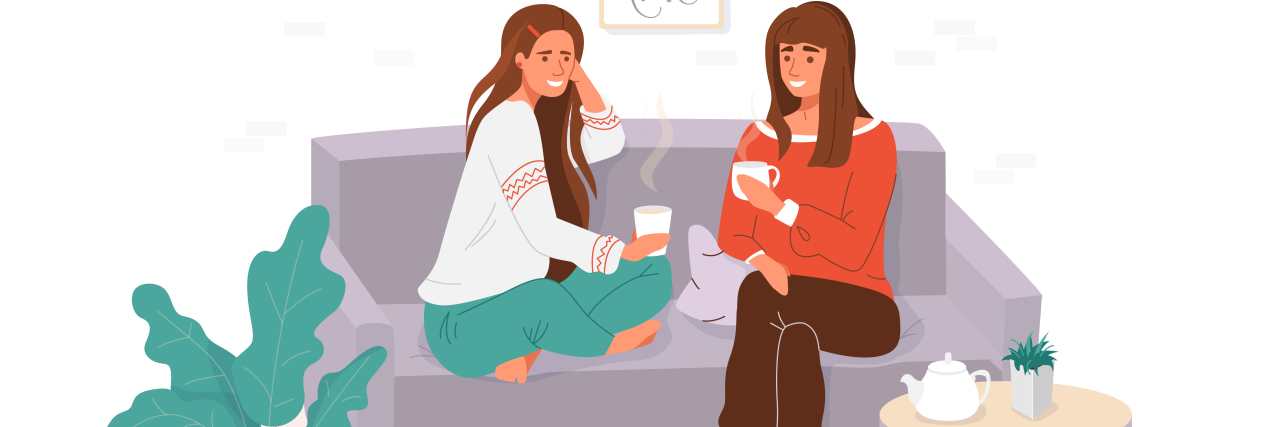It was a beautiful, warm day outside — typical for Los Angeles — and a couple of friends asked if I wanted to go for a hike. I really wanted to catch up with them while spending some time in nature — something that helps me manage my anxiety and depression. But, due to my chronic pain and fear of having yet another flare-up, I said no. I spent the rest of the afternoon angry at my body and anxious that my friends were annoyed. I’ve lost count of how many times situations like this have come up in the last seven years since being diagnosed with hidradenitis suppurativa (HS), an autoimmune condition that affects the skin. My mind and body are not on the same page, and that is incredibly frustrating and anxiety-inducing.
Sometimes, I accept invitations knowing I am taking a risk and will likely pay for it later. The next day, I usually wake up to find my T-shirt is wet in the armpits due to drainage from my lesions. The lesions and inflammation in my groin area are burning, and I worry that it might result in a day (or days if it’s bad) in bed — not being able to walk. The inflammation from HS causes me to develop abscess, which are painful lumps that normally contain puss.
When I was first diagnosed with HS, I was so ashamed of the damage it was doing to my body externally. My armpits were filled with abscesses. I was relieved to have a diagnosis, but I told myself that I would need to deal with this disease on my own. Worried about what people would think of me, I couldn’t show anyone what HS looked like. I didn’t want to see the disgust on my friends’ faces. Self-consciously, I vowed to hide it as best I could.
But I slipped up one night. It was the spring of my senior year of college, around four months after my diagnosis. Excited to be out with my friends, I threw on a cute black tank top and ran out the door on my way out for that night —forgetting my trusted sweater that hid the wounds. We were at a bar, and a song came on that I loved. We all ran out to the dance floor and next thing I knew, I was waving my arms high above my head in a state of joy. As soon as I realized what I had done, I quickly put my arms down and snuck out of the bar.
I had hoped no one had noticed, but a friend asked me about it the next morning. I actually felt a little relief in finally being able to tell someone. They knew I had a chronic illness but had no idea what my life with HS entailed.
Now that I’ve had this disease for years, most of my friends — who I was so nervous to share my condition with — know all about my HS. When telling a new friend about HS, I say that I have a chronic skin disease that results in abscesses and lesions in different places on my body. For a while, I was comfortable discussing the lesions on my underarms, but only my closest friends knew about the abscesses in my groin or underneath my breasts. Until recently, I hadn’t shown anyone but my family what an inflamed area looks like.
These days, I am also a lot more straightforward when it comes to the balance of socializing and meeting my needs. I explain to friends that, while I always love seeing them, there are just some activities I can’t participate in. I also explain that I’m still not sure what triggers a flare-up, so if I cancel last minute, it’s not personal. There are some days when I can barely walk when my chronic skin condition flares. And on those days, I tell friends that I can only hang out if they come over, and we just relax and watch a movie or talk. I feel guilty making them come to me, and only being able to just sit and hang out. It’s hard to not take it personally when someone declines or says they can’t, but I also know that taking care of my health and chronic pain is necessary.
I want my friends to understand that when I go to bed every night, I have no idea what the next day is going to look like. HS doesn’t care about my plans. It doesn’t care that it’s a close friend’s birthday or the first day of vacation. I want them to know the intense burning feeling I get when a lesion is draining and rubbing against my shirt or underwear, and that it sometimes brings me to tears.
I also discuss what having a chronic illness like HS means in the long-term. I hope to go into remission at some point in my life, but I have no idea if or when that will happen. There is no cure right now, so I will have to live with for the indefinite future. If I have a good day, I cherish it. But it doesn’t mean I’m magically better.
I’ve found that once I show someone what my armpit looks like, they have a better understanding of the pain I feel on a daily basis. They are able to see the drainage and raw wounds that come with the lesions. It can feel scary to show a friend a part of your body that HS has taken over — there’s the fear of judgment, dismissal or disgust. While there are people who may react that way, most people respond in a caring way. My friends remind me that I am still a worthy friend despite HS, even if I can’t make it to some important life event
Image via Getty Images/tatianazaets

